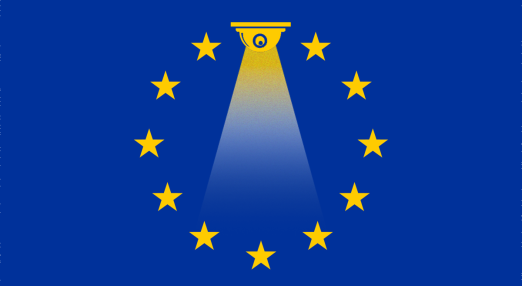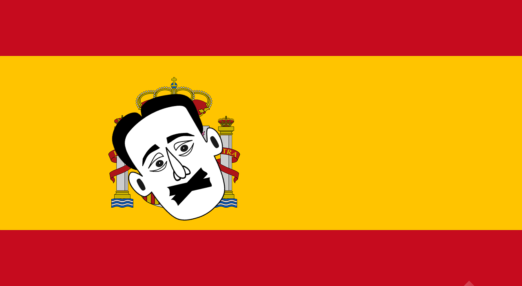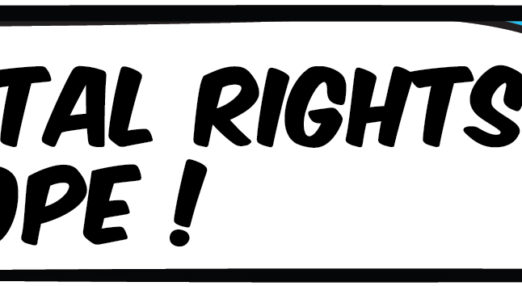spain
Filter by...
-

Building the biometric state: Police powers and discrimination
This report examines the development and deployment of biometric identification technologies by police and border forces in Europe, and warns that the increasing use of the technology is likely to exacerbate existing problems with racist policing and ethnic profiling.
Read more
-

Transposition of the Copyright Directive in Spain
The transposition of the Copyright Directive in Spain has been done with no Parliament debate. While the political parties could ask for it, they will likely not do so for fear of conflicting with certain famous artists from the copyright lobby, who are lobbying for an extreme position on copyrights.
Read more
-

Transparency for institutions, privacy for the people
Much has been said about abuses of personal data by platforms like Facebook and other private companies. However, there is little observation of non-compliance by public administrations or institutions such as the policies undermining the privacy of the public and the small (or large) daily abuses people are subject to.
Read more
-

Spain: Catalan government agrees to improve privacy in schools
The Catalan Department of Education has signed an agreement accepting the plan proposed by Xnet, EDRi member from Spain, titled “Privacy and Democratic Digitization of Educational Centers,” to guarantee the privacy of data and the democratic digitization of schools. The plan foresees the creation of a software-pack and protocols that ensure the educational establishments have alternatives to what until now seemed the only option: the technological dependence on Google and its attached elements, with worrying consequences on individual data.
Read more
-

Xnet issues two complaints to improve data protection in Spain
Xnet highlights gaps in Spain’s adaptation of the EU General Data Protection Regulation (GDPR). The Spanish member of EDRi has opened two complaints to the European Commission related to the lack of effective adaptation of the data minimisation principle and the lack of conciliation between personal data protection and freedom of expression and information in the Spanish legislation.
Read more
-

Spain: New law threatens internet freedoms
On 5 November 2019, the Royal Decree-Law 14/2019 that had been adopted on 31 October was published in the Spanish Official State Gazette (BOE). This was just five days before the general elections that would take place on 10 November, under an undefined “exceptionality and urgency”, and justified by the “challenges posed by new technologies […]
Read more
-

Restoring freedom of expression in Spain: end the “gag law”
Spain has been one of the countries of the European Union that has most shamefully stood out for its government’s attitude against freedom of expression and information.
Read more
-

Leak: Three EU countries join forces for restrictions & copyright chaos
Leaked documents concerning the Copyright Directive show that France, Spain and Portugal have joined forces in the Council of the European Union to attack the cornerstones of internet freedom in Europe. The documents show that the three countries propose elevating fighting copyright violations to a special status – above combating terrorism, child abuse and serious […]
Read more
-

No justification for internet censorship during Catalan referendum
The ruthless efficiency with which the Spanish government censored the internet ahead of the referendum on Catalan independence foreshadowed the severity of its crackdown at polling places on 1 October. EDRi member Electronic Frontier Foundation previously wrote about one aspect of that censorship; the raid of the .cat top-level domain registry. But there was much […]
Read more
-

Spanish Citizens’ Security law: There is still some hope
Despite considerable global criticism, the Spanish Citizens’ Security law was passed on 26 March 2015, together with the reforms of the Criminal Code, which include punishment of badly-defined “terrorist crimes” online. The Citizens’ Security law was greatly opposed by political parties, but that was not enough against the majority in the Parliament of the Popular […]
Read more
-

ENDitorial: Spanish rightsholders lobby against copyright reform
Among the very energetic but narrow group of critics attacking the European Parliament’s draft report on the implementation of the Information Society Directive (2014/2256(INI)), the Spanish collecting society SGAE has been one of the most vociferous. In a position paper sent to Parliamentarians, SGAE declares “inadmissible” the mere idea of debating copyright reform and makes […]
Read more
-

Spanish Citizens’ Security Bill: Many restrictions, few freedoms
In summer 2014, the EDRi-gram reported on the Spanish bill on the Protection of Citizens’ Security, shedding light on some of its most controversial measures. In December 2014, the Spanish Congress passed the Citizens’ Security bill by 181 votes to 141. Now, the bill will be discussed in the Senate until the end of March […]
Read more
